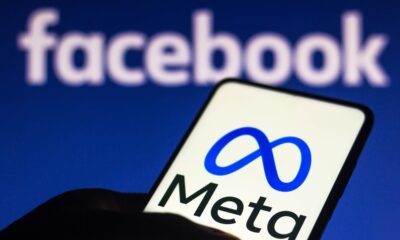The founder and Group Managing Director of SystemSpecs Holdings Limited, Dr John Tanimola Obaro has called on the graduating students of Kings University, Odeomu, Osun State to explore new opportunities in technology and come up with new innovation and creativity that would make them self sustaining and provide solutions to the challenges battling the country.
He gave this charge at the 5th and 6th Combined Convocation Ceremony of the faith-based university at the campus on Friday.
Delivering a lecture titled: “Navigating the Digital Era: Embracing Creativity and Unlocking the Boundaries of Technology,” Obaro emphasised the importance of creativity in the ever-evolving digital world, encouraging the audience to explore new possibilities within technology.
“As we navigate this digital age, creativity becomes the key to unlocking boundaries and pushing the frontiers of technology. Innovation is not confined to traditional tech sectors; rather, it can benefit several fields seamlessly. The integration of technology in areas like law, medicine, and engineering opens unprecedented pathways for growth and success. Our capacity to innovate and embrace the opportunities before us will define not just our future, but that of generations to come,” the technology expert said.
Meanwhile, in recognition of his outstanding contributions to technology and exemplary leadership, Dr Obaro, has been conferred with an honorary Doctor of Science (D.Sc.) by Kings University during the convocation ceremony.
The Vice-Chancellor of the university, Professor Adenike Kuku, presented Dr Obaro with the distinguished honour, celebrating his groundbreaking work in technology, particularly in the areas of digital payment solutions, and his significant leadership in driving innovation across the African continent.
Dr. Obaro’s transformative leadership at SystemSpecs, one of Africa’s foremost software technology powerhouses, has profoundly impacted the digital landscape in Nigeria and beyond. SystemSpecs is renowned for its revolutionary Remita e-payment platform and the HumanManager software, both of which have empowered governments, businesses, and individuals to embrace technology as a catalyst for growth.
Dr Obaro is a distinguished alumnus of Ahmadu Bello University, where he earned a Bachelor’s degree in Computer Science and Mathematics in 1979. He obtained an MBA from the University of Lagos in 1981 and later completed the Chief Executive Program at Lagos Business School in 1998. In addition to his academic accomplishments, he was awarded an honorary Doctorate in Computing and Information Technology by Trinity University in 2024, recognising his pioneering contributions to Nigeria’s software industry.
The SystemSpecs Group Managing Director expressed his profound gratitude to Kings University for the honour, while also acknowledging the invaluable support of his family and the talented team at SystemSpecs, stating: “I am deeply honoured to receive this recognition, and I dedicate this award to the many innovators who continue to shape Africa’s digital ecosystem. This recognition is as much a testament to the passion and dedication of the incredible minds I have had the privilege of working with.”
The ceremony also attracted prominent figures and other distinguished awardees such as Mr Paul Alaje, Senior Economist and Partner at SPM Professionals, Abuja, and Ms Yemi Adeyinka, Team Lead at Eaglecrest Legal Consult, Lagos, both of whom received Awards of Excellence in their respective fields.




 News3 weeks ago
News3 weeks ago


 Business3 weeks ago
Business3 weeks ago


 Technology3 weeks ago
Technology3 weeks ago
 Investment3 weeks ago
Investment3 weeks ago


 Banking Sector3 weeks ago
Banking Sector3 weeks ago
 Banking Sector3 weeks ago
Banking Sector3 weeks ago
 Appointments3 weeks ago
Appointments3 weeks ago
 Investment3 weeks ago
Investment3 weeks ago












